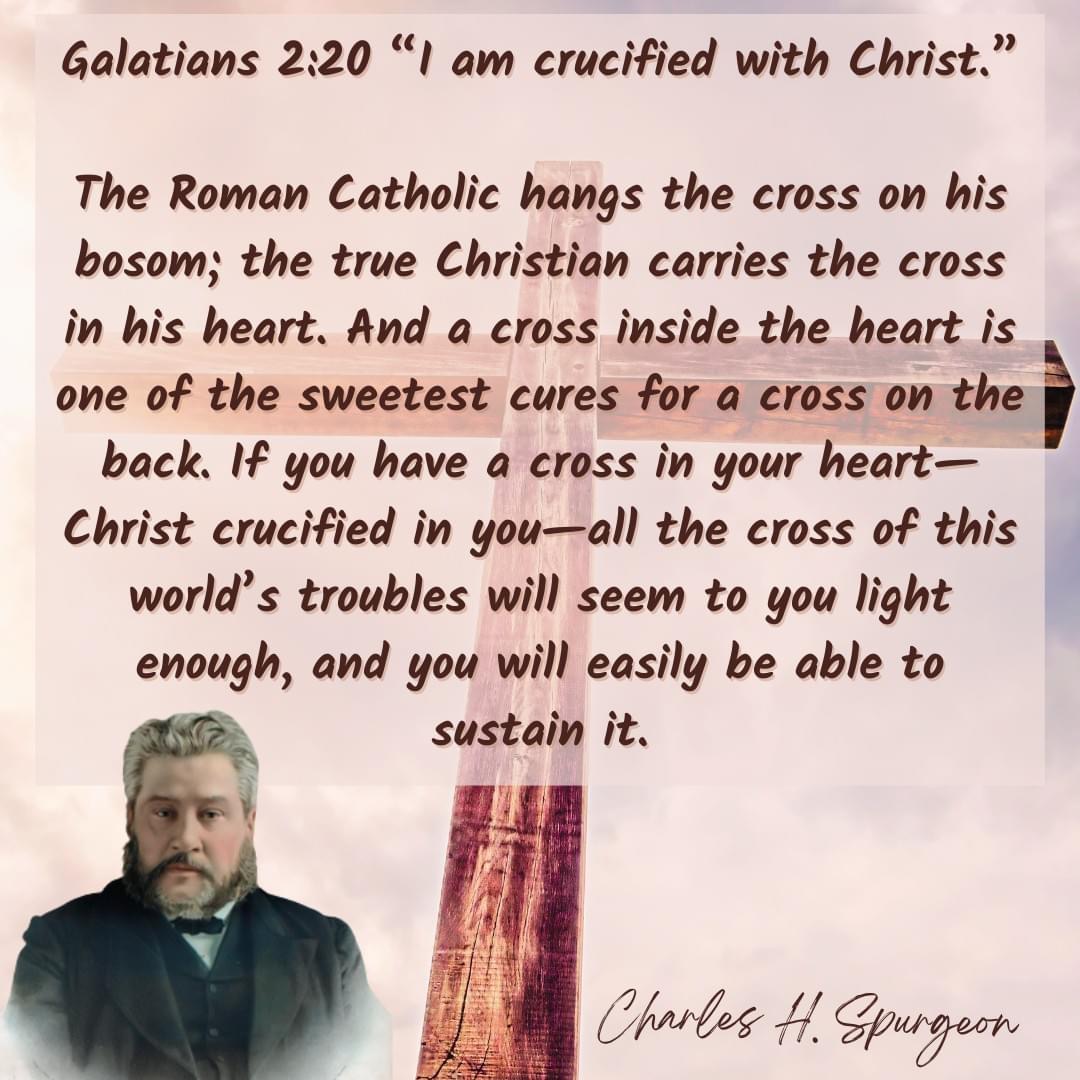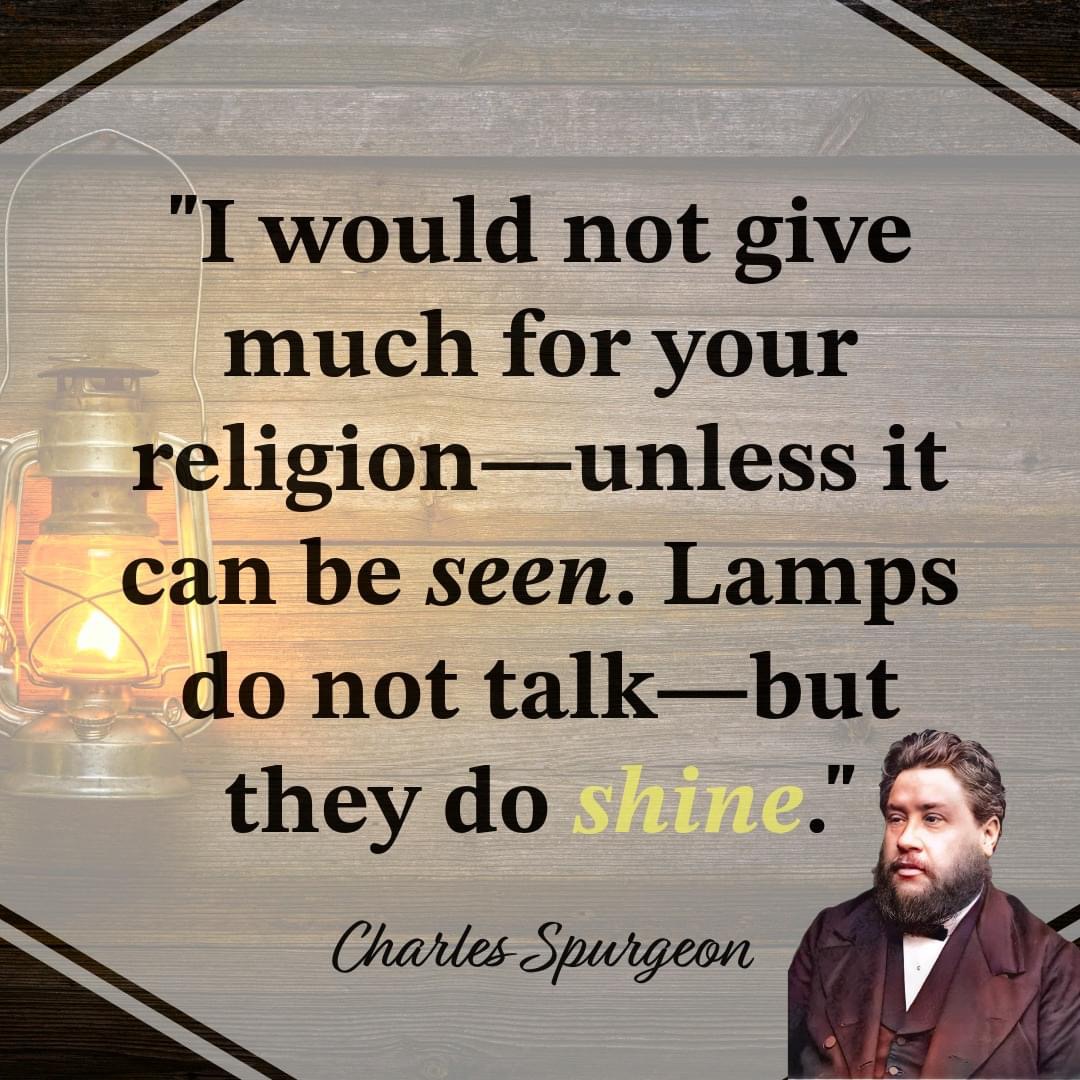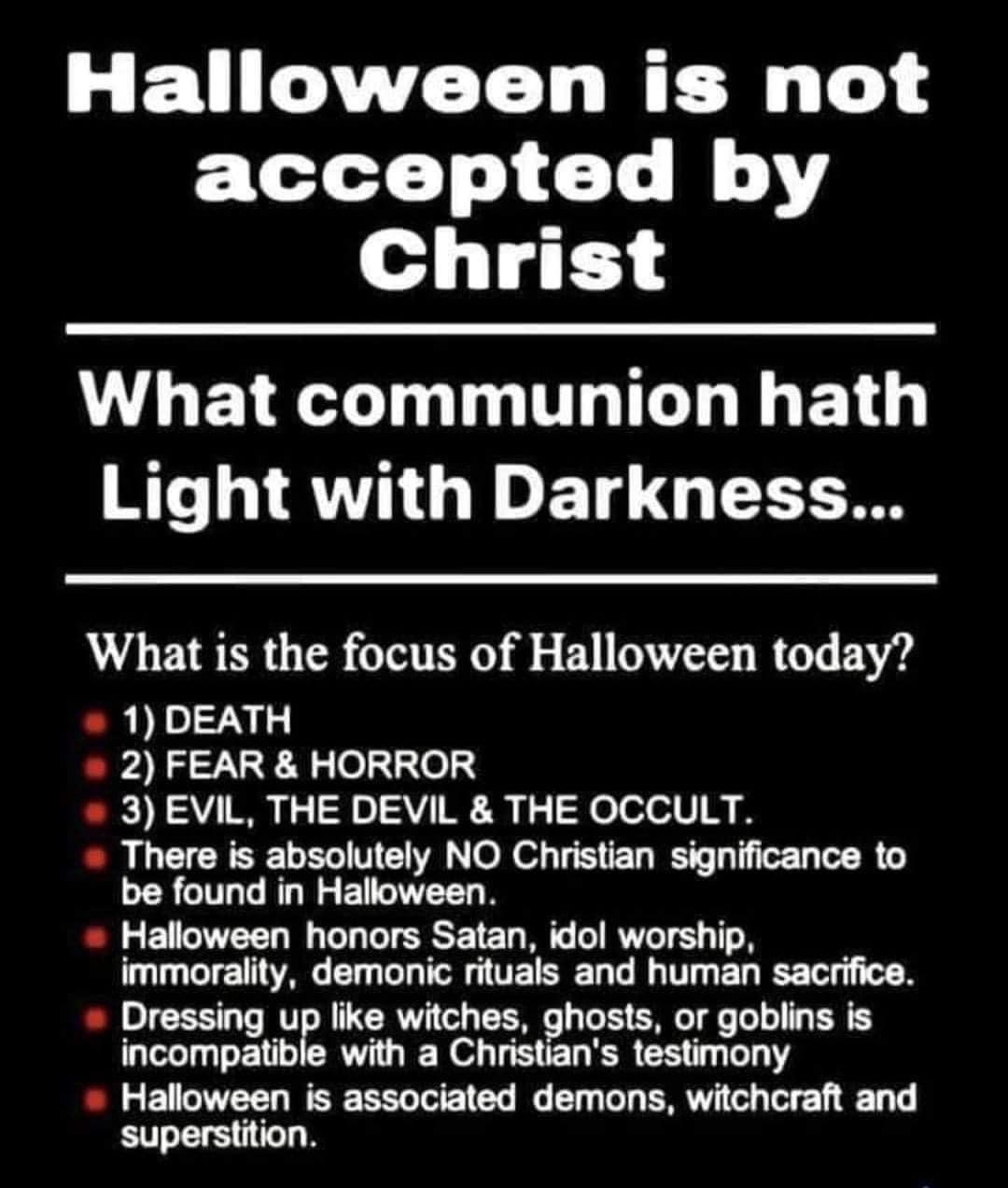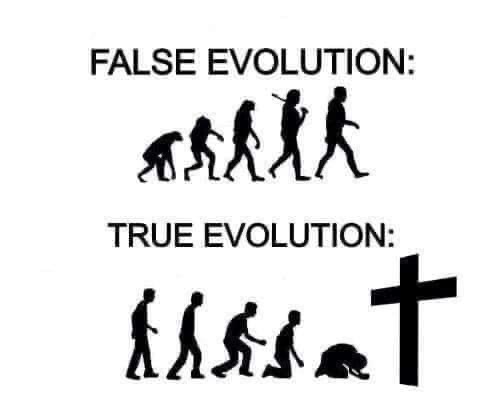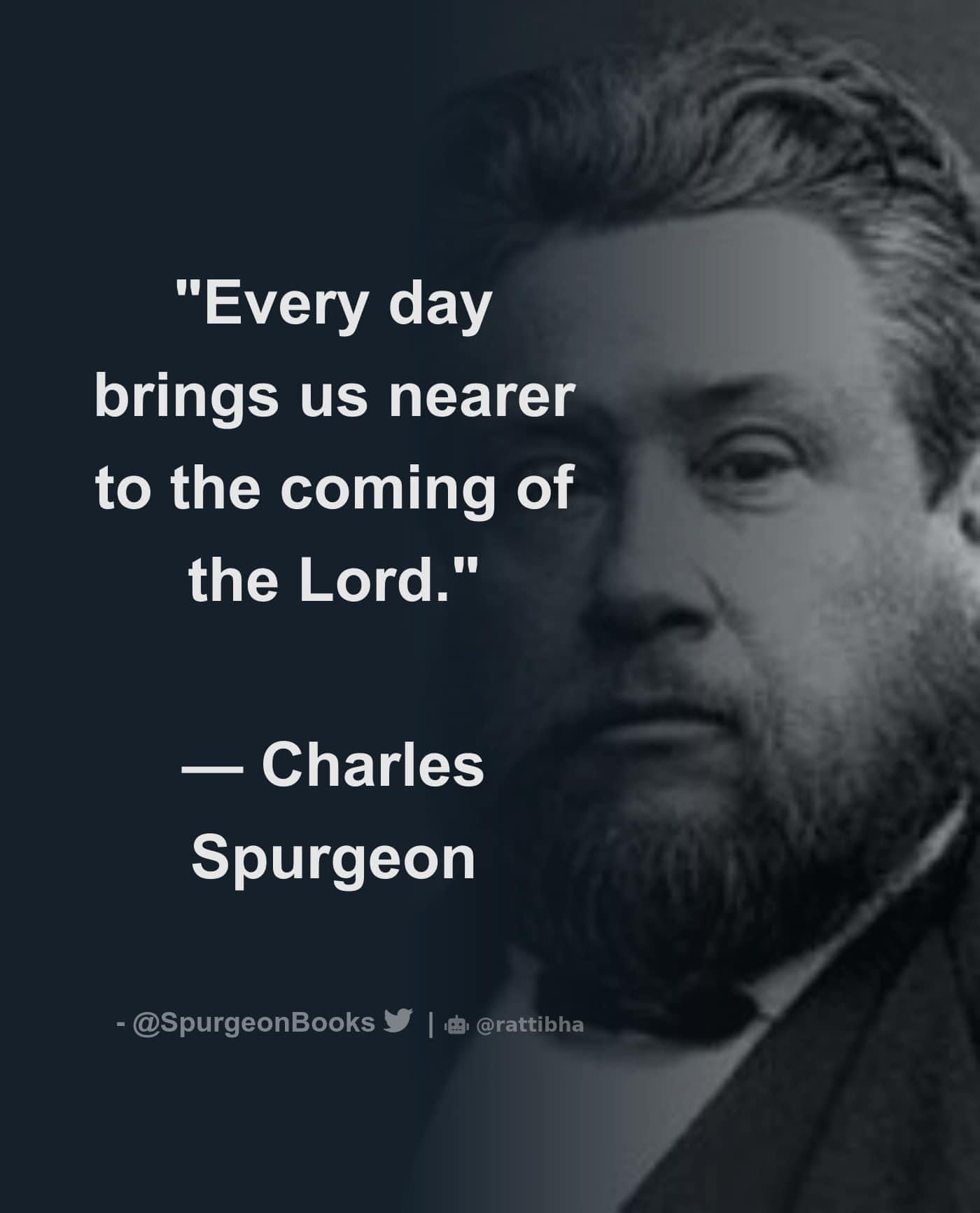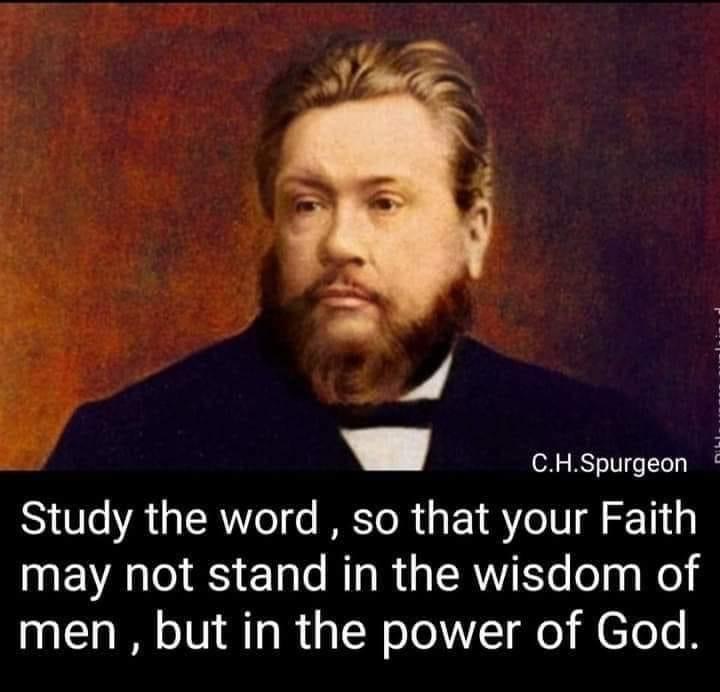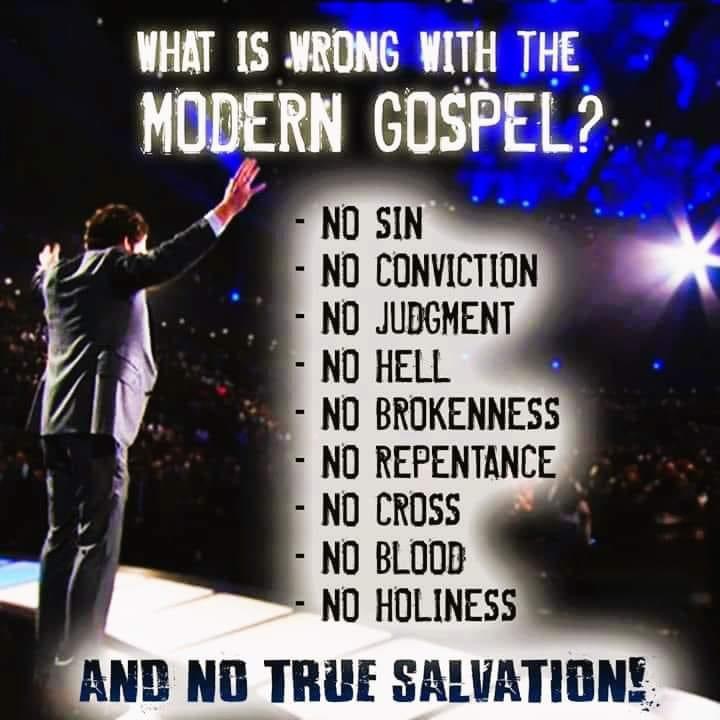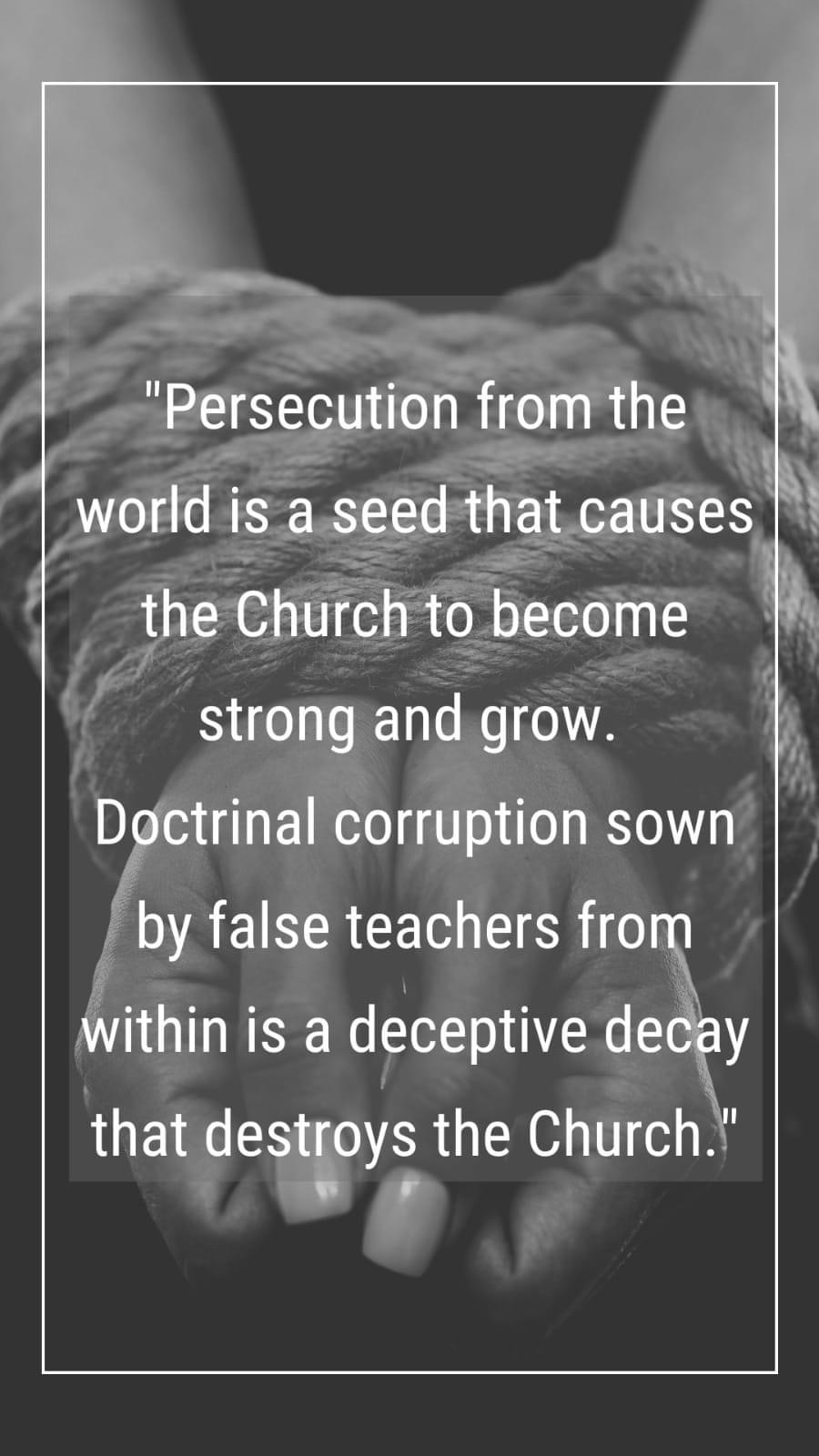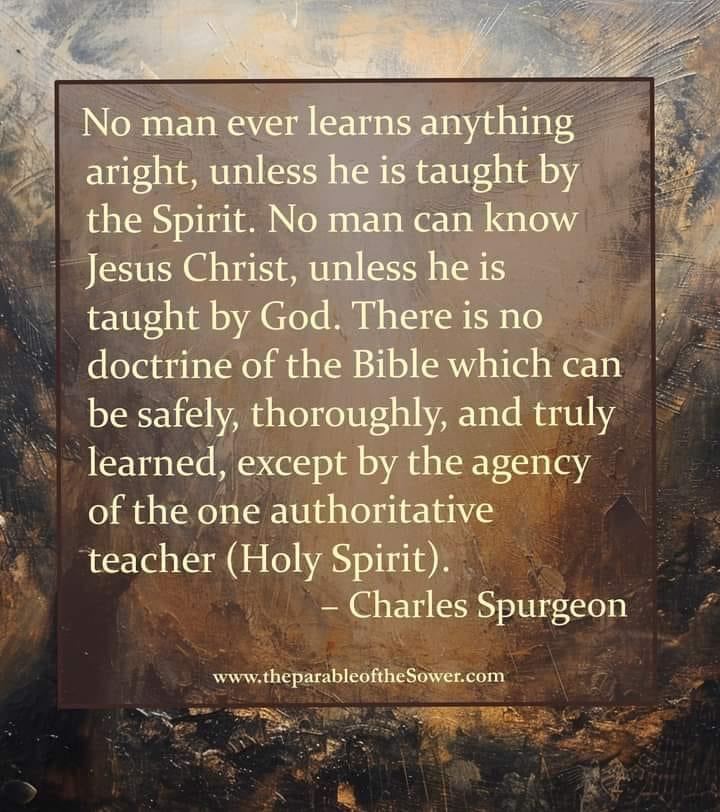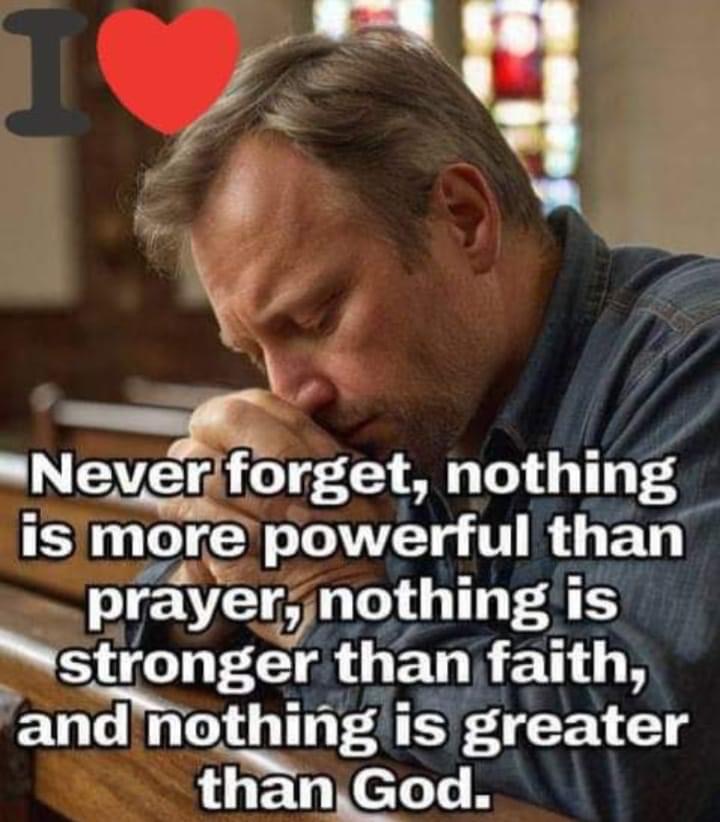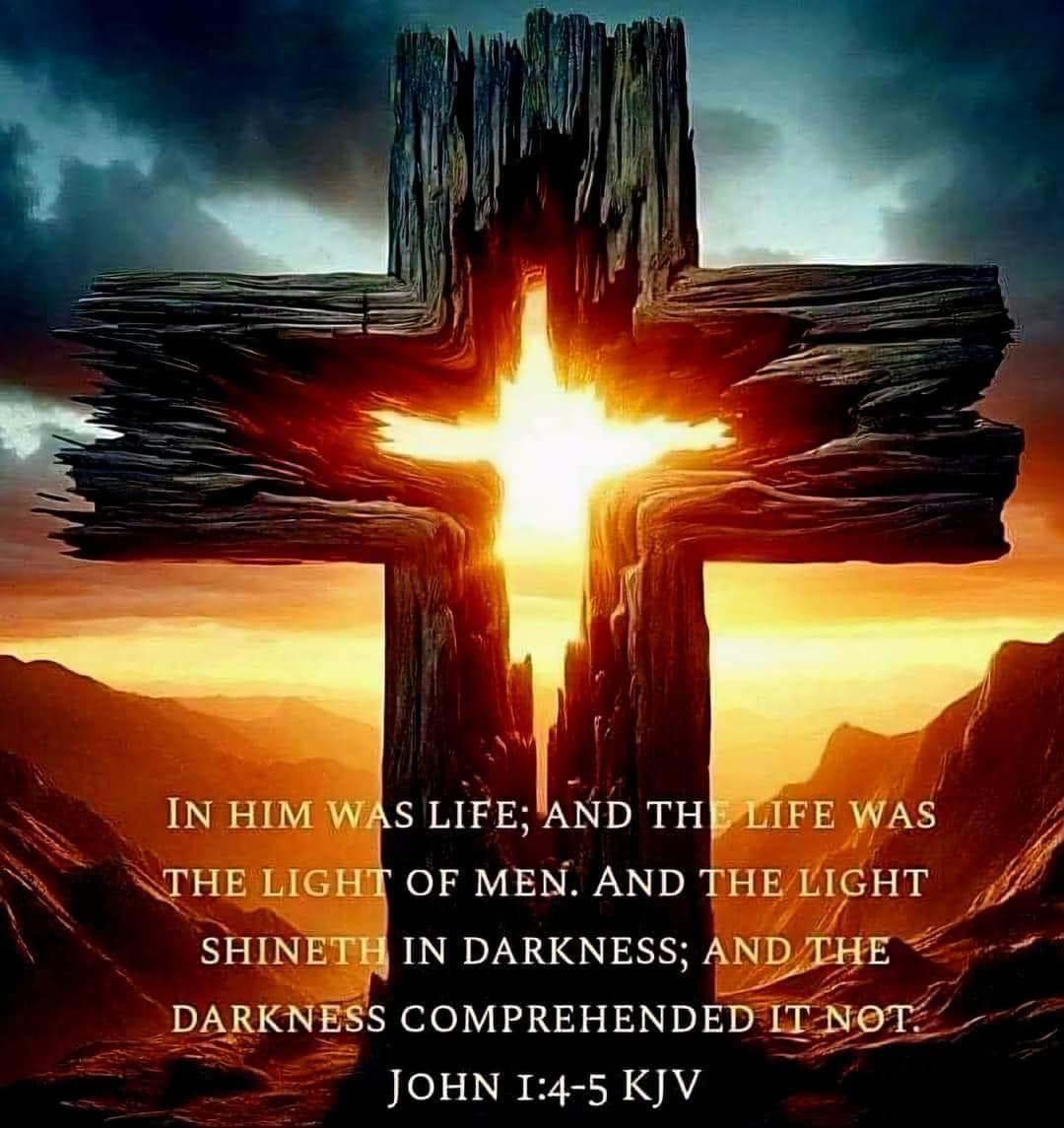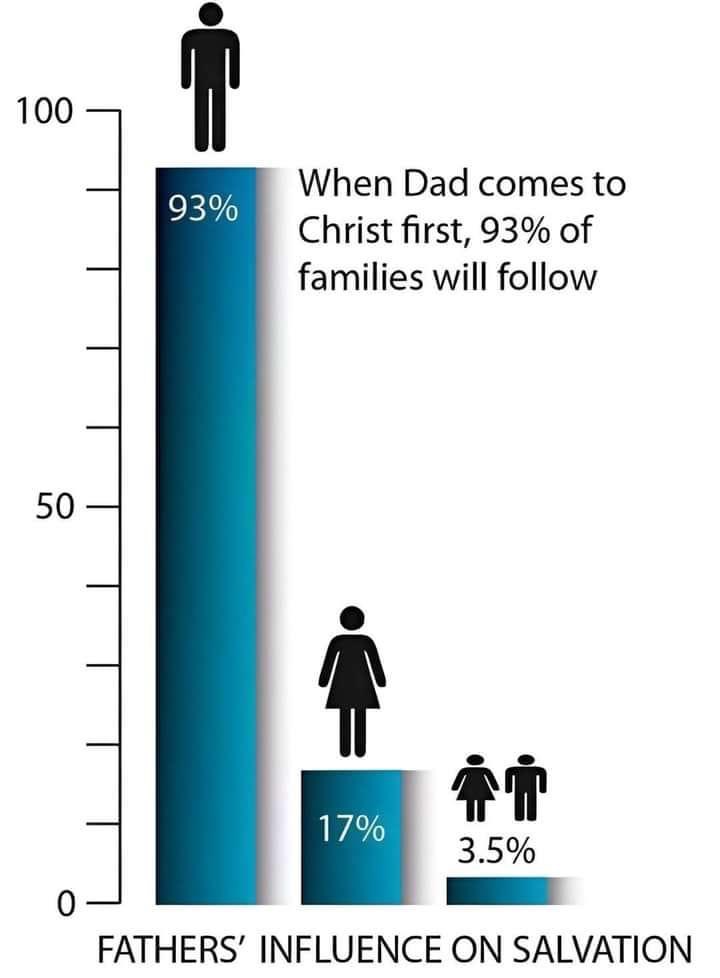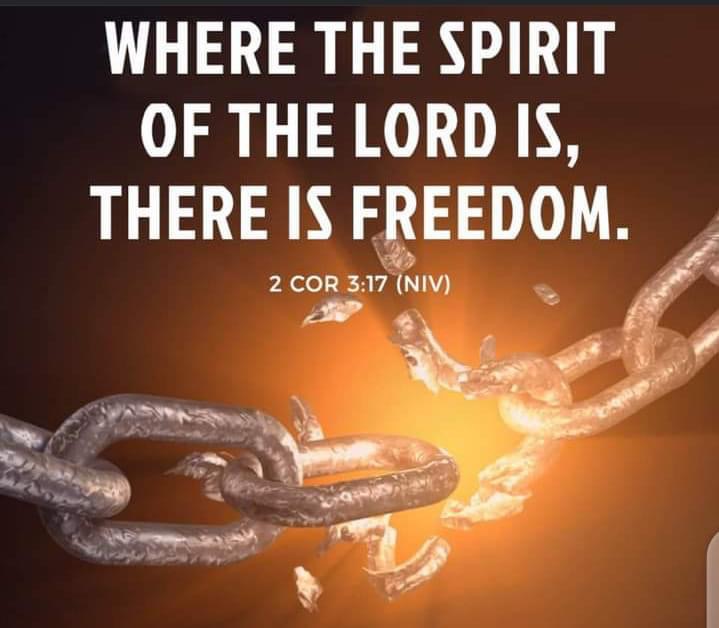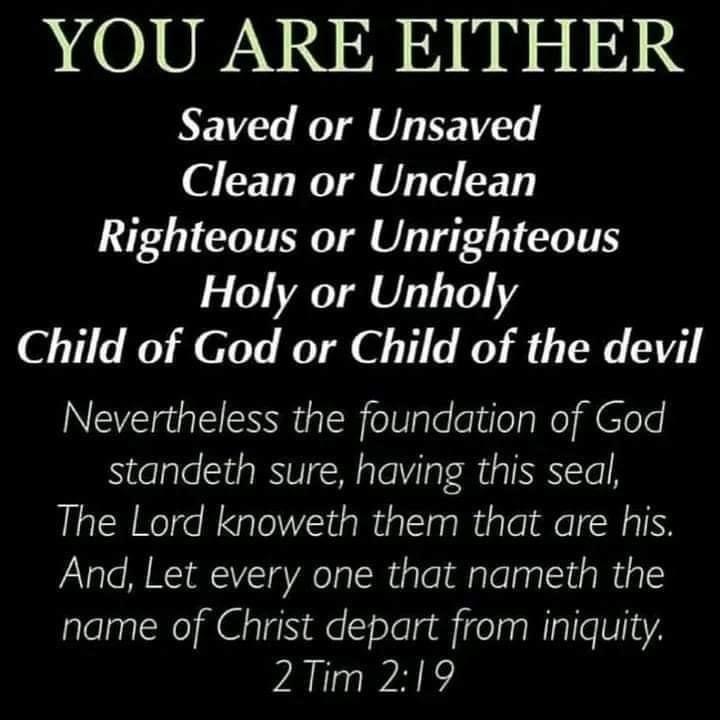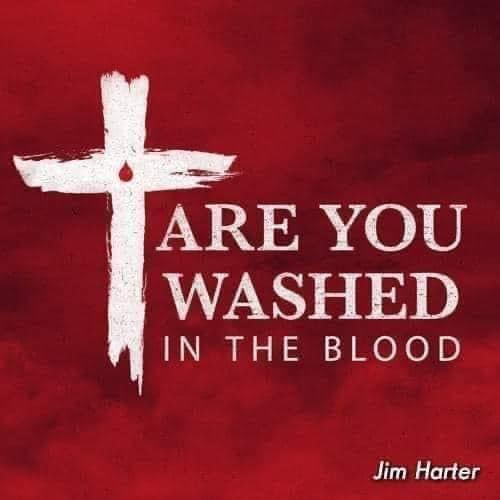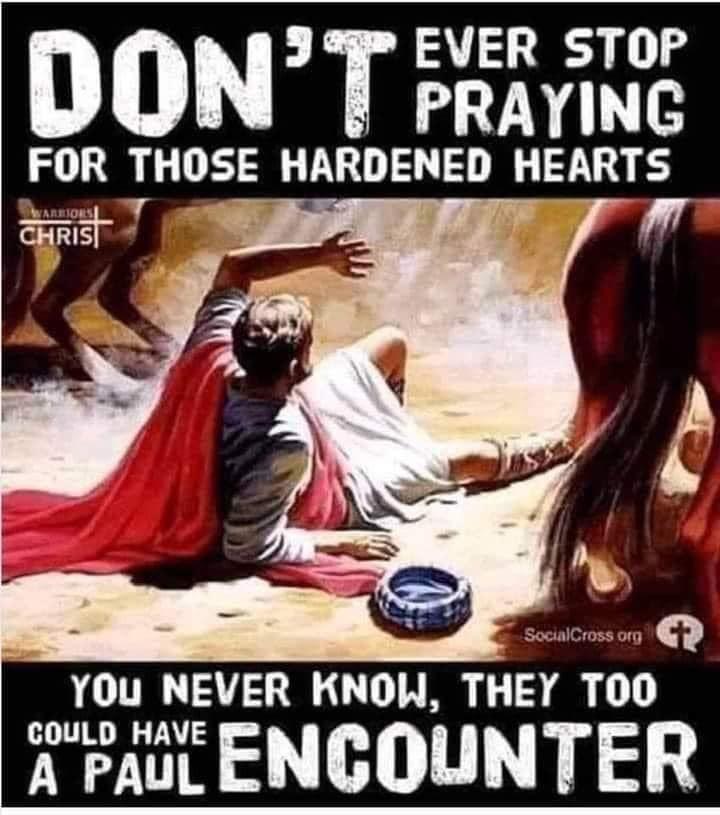Afternoon Devotional
|
Devotional Title: Doubting God’s Goodness (12/13/24) When you face temptation, remember that sin leads to suffering but trusting God leads to blessing. Key Bible Passage: Genesis 3:1-7 Living in this fallen world can challenge our faith in God’s goodness. The pain and suffering that resulted from Adam and Eve’s sin may cloud our understanding of the Lord. Why doesn’t He always relieve hardships, fix our problems, and give us what we want? When Eve listened to the serpent’s lies in the garden of Eden, she began to doubt God. Why would He deprive her of wisdom and the enjoyment of food that looked so desirable? Our thoughts are similar to Eve’s when we don’t agree with what our Father says is best for us. From a human perspective, “good” refers to what is enjoyable, comfortable, or profitable. But the Lord has a much higher standard and is always working to achieve His purpose—to develop Christlike character in His children. Behind every restriction or commandment our Father gives to us is His loving care for His children. He knows the consequences of sin and wants to protect us. Adam and Eve learned through disobedience that God knows what’s best. We have the opportunity each day to discover His goodness by listening to His voice, obeying His commands, and trusting His wisdom. Whatever may come our way, we can know He is working for both our temporal and eternal good (Rom. 8:28). Devotional Title: The Struggle With Envy (12/12/24) Have you learned to trust God and be content with His plan for your life?
Key Bible Passage: Samuel 18:5-16 We all have expectations, desires, and hopes for life, but our plan isn’t always best. And what we see someone else experiencing may not be what our Father has in store for us. When you compare yourself with others, watch out! Envy is usually lurking close by.
Consider Saul. Appointed by the Lord to be Israel’s first king, he was given power and success. But hearing women praise David’s great victory over Goliath, Saul became jealous and suspicious (1 Sam. 18:6-9), to the point of obsession. And for several years he was driven by his fixation to do away with David.
This may seem like an extreme example. And yet, if we honestly examine ourselves, we will likely find that envy is hiding somewhere in our heart, too. Ask yourself, Is there anyone whose material, physical, or relational success causes me to feel displeasure or discomfort?
The fallacy of envy is that we can never view the entire picture of someone else’s life. Only God sees beneath the surface of what is visible to others. Our eyes should focus on our own walk with the Lord. He created each of us differently, and His plan for every individual’s life is unique.
Devotional Title: Conquering Envy (12/11/24 Comparison is a trap that keeps us from God’s best for our life.
Key Bible Passage: Psalm 37:4-6
Envy is like a snowball that grows larger and larger—and the consequences are often devastating. Confusion, anxiety, and bitterness can make it nearly impossible to keep God’s plan in view. Instead, the focus becomes what we don’t have, making us resent those who do have the desired object or trait. Then fear of not measuring up can dominate our thinking. What’s more, covetousness dishonors the Lord. Though He has a beautiful plan for each and every one of His children, envy says, “I don’t trust that You truly give me Your best.”
If you find any evidence of this attitude in your life, confess the comparison mindset. Recognize that you’re focusing on what God is doing in another person’s life rather than in your own. Thank Him for how He is blessing the other person, and ask Him to place a love in your heart for that individual. Then refocus your attention on what the Father is doing in your life. Finally, memorize and meditate on Psalm 37:4-6.
If you’re burdened with envy, then you’re missing out on God’s best. Don’t wait to deal with this sin, which will fester and grow if left unattended. The One who created you and designed a good plan for your life is able to help you correct your mindset.
Devotional Title: The Good Fight (12/10/24) Key Bible Passage: I Timothy 6:12
Scripture frequently refers to the Christian life and work in athletic or combative terms. When all things are considered, reason compels the Christian to enter into the race and fight.
First, our Commander is worth following. He leads us into battle and stands with us on the front lines, receiving the fiercest fire: “Let us run with patience the race….Looking unto Jesus the author and finisher of our faith; who for the joy that was set before him endured the cross” (Hebrews 12:1-2). Second, we are well-armed and protected. The “whole armour of God” includes the girdle of “truth,” the “breastplate of righteousness,” shoes of “the preparation of the gospel of peace,” “the shield of faith,” “the helmet of salvation,” and “the sword of the Spirit, which is the word of God” (Ephesians 6:13-17). The warrior’s mouth is filled with prayers and bold speech (vv.18-20), his sword has no scabbard, and his back has no armor, for retreat is unthinkable. The goal of our fight urges us on. We strive to undermine the kingdom of darkness and to fill it with light. Each must battle on to exalt our Leader and to champion His Word. “Consider him that endured such contradiction of sinners against himself, lest ye be wearied and faint in your minds” (Hebrews 12:3). To the victor belong the spoils. “To him that overcometh will I grant to sit with me in my throne” (Revelation 3:21). We no longer will be soldiers but kings; we will trade our battle armor for robes, washed and made “white in the blood of the Lamb” (Revelation 7:14). Our helmet will be replaced by an “incorruptible” crown (1 Corinthians 9:25)—“a crown of righteousness, which the Lord, the righteous judge, shall give [us] at that day” (2 Timothy 4:8). Devotional Title: Peace Beyond Comprehension (12/9/24) When feeling anxious, share your concerns with God to receive His peace in your mind and heart. Key Bible Passage: Philippians 4:6-7 The apostle Paul wrote his epistle to the Philippians from a prison cell. Though his situation was dire, true inner tranquility was available. Paul knew that giving his concerns over to God would result in the peace “which surpasses all comprehension” (v. 7). From a human perspective, having a quiet spirit in a storm of trouble doesn’t make any sense. We’re “supposed” to become anxious—it’s only natural. But our God is supernatural, and He is living inside us in the form of the Holy Spirit, so we can remain peaceful. No matter what trying circumstances may challenge our faith, peace grounded in Jesus Christ cannot be broken. With the Father’s omnipotent hand protecting and providing for us, what reason do we have to be afraid or fretful? We must keep our eyes and our faith focused upon the Lord. As Isaiah writes, “The steadfast of mind You will keep in perfect peace, because he trusts in You” (Isa. 26:3). We live in a world of conflict and often find ourselves suffering heartache. It’s easy to become fixated on a situation and how it has disrupted our life. But peace comes from choosing to trust that God will bring about a resolution in His time and in His way.
Key Bible Passage: 1 Peter 2:9 The fourth verse of Charles Wesley’s great hymn “And Can It Be That I Should Gain?” compares Peter’s miraculous deliverance from prison to a sinner’s deliverance from bondage to sin. “Peter was sleeping,…boun
The Bible teaches that before being delivered, “ye were the servants of sin [i.e., in bondage to sin], but ye have obeyed from the heart that form of doctrine which was delivered you. Being then made free from sin, ye became the servants of righteousness” (Romans 6:17-18). We were powerless to gain freedom on our own. But “God, who commanded the light to shine out of darkness, hath shined in our hearts, to give the light of the knowledge of the glory of God in the face of Jesus Christ” (2 Corinthians 4:6), bringing freedom and life. “For Christ also hath once suffered for sins, the just for the unjust, that he might bring us to God, being put to death in the flesh, but quickened [made alive] by the Spirit” (1 Peter 3:18). “And you, being dead in your sins…hath he quickened together with him, having forgiven you all trespasses” (Colossians 2:13). If He has done all this for us, how can we do less than follow Him? JDM |
Devotional Title: Our Great High Priest (12/5/24)
|
Key Bible Passage: I Timothy 1:17 The second verse of “And Can It Be That I Should Gain?” poses and solves a great mystery: ’Tis mystery all! the immortal dies! Our text reminds us that God is immortal. And yet, “Christ died for our sins” (1 Corinthians 15:3) to bring us salvation. If this astounds us (and it should), we can take solace in that we are not alone. “Of which salvation the prophets have enquired and searched diligently, who prophesied of the grace that should come unto you: searching what, or what manner of time the Spirit of Christ which was in them did signify, when it testified beforehand the sufferings of Christ, and the glory that should follow. Unto whom it was revealed, that not unto themselves, but unto us they did minister the things…which things the angels desire to look into” (1 Peter 1:10-12). Think of it! The Creator, the Author of life, died to offer eternal life to His creation, for “all have sinned” (Romans 3:23), and the “wages of sin is death” (Romans 6:23). He died so that we don’t have to die! This grand plan remains beyond our full grasp, as it always was to the prophets and the angels. The motive behind His plan is God’s mercy. “Not by works of righteousness which we have done, but according to his mercy he saved us;…which he shed on us abundantly through Jesus Christ our Saviour” (Titus 3:5-6). “O the depth of the riches both of the wisdom and knowledge of God! how unsearchable are his judgments, and his ways past finding out” (Romans 11:33). |
Devotional Title: Trust God’s Plan (12/3/24)
Devotional Title: Know Your God (12/2/24)
Devotional Title: Our Incomparable Companion (11/26/24)
Devotional Title: Purpose In Every Step (11/25/24)
Devotional Title: How to Apply God’s Principles (11/19/24)
Living the Word rather than just reading it is how we’re able to see God work.
Key Bible Passage: Psalm 119:17-24
The process for applying scriptural principles is often misunderstood. It’s not simply three steps: hear, believe, apply. We must also explore and discover before we take action.
To explore a biblical principle means studying Scripture to understand what the surrounding context is, what its lesson means for your life, and what it reveals about God. Furthermore, we must consider how all this relates to the rest of the Bible. Digging into the Word softens our hearts and minds so that the new doctrine gets planted deeply.
As we journey further into Scripture to explore, the new concept rises off the page and becomes real to us. We discover how the principle works and how to apply it to our life. As we do, God’s rich truth becomes our own. The more we take into our heart and mind, the better they can impact us from the inside out.
A believer who has little to say about God’s work in his life is probably not applying Scripture. Simply hearing and believing doesn’t make a concept yours (James 1:22-25). A principle is yours when you explore the truth, discover its place in your life, and apply the concept so that God can make it work.
Devotional Title: Inviting God’s Presence (11/11/24)
To Obey is Better Than Sacrifice (Samuel 15:22)
Samuel gives a fearful order to Saul: 1 Samuel 15:2-3 ‘Thus saith the LORD of hosts, I remember that which Amalek did to Israel, how he laid wait for him in the way, when he came up from Egypt. Now go and smite Amalek, and utterly destroy all that they have, and spare them not; but slay both man and woman, infant and suckling, ox and sheep, camel and ass.’ When God says ‘all,’ He means all. As awful as His order may seem to us, His divine justice must overrule our judgment.
That was Saul’s problem. He decided to disobey God’s order. 1 Samuel 15:9 ‘But Saul and the people spared Agag, and the best of the sheep, and of the oxen, and of the fatlings, and the lambs, and all that was good, and would not utterly destroy them: but every thing that was vile and refuse, that they destroyed utterly.’ Agag was the Amalekite king. What part of God’s ‘all’ did Saul not understand?
It gets worse. Samuel asks Saul about all the bleating sheep he hears. Samuel knows where they came from. So does God. We cannot read Saul’s mind, but he has been put on the spot for disobeying God: 1 Samuel 15:15 ‘And Saul said, They have brought them from the Amalekites: for the people spared the best of the sheep and of the oxen, to sacrifice unto the LORD thy God; and the rest we have utterly destroyed.’ Saul tries to deflect blame onto the people. They took the animals; it was their fault. This betrays Saul’s weakness as a leader.
Samuel won’t let Saul off the hook: 1 Samuel 15:19 ‘Wherefore then didst thou not obey the voice of the LORD, but didst fly upon the spoil, and didst evil in the sight of the LORD?’ Please note disobedience to God’s instructions is doing ‘evil in the sight of the Lord.’ Saul and people try to backtrack, and make up for it by sacrificing the animals, but God has not ordered that. They should not have taken livestock in the first place. Saul repeats his excuses for disobedience in verses twenty and twenty-one, but Samuel prophesies: 1 Samuel 15:22 ‘And Samuel said, Hath the LORD as great delight in burnt offerings and sacrifices, as in obeying the voice of the LORD? Behold, to obey is better than sacrifice, and to hearken than the fat of rams.’
This incident begins a theme in the Old Testament. The issue is obedience. Trying to make up for disobedience by doing something we think appeases God will not work. God desires right conduct and behavior, not going through the motions of false or hypocritical worship as though God will wink at our sin as long as we look ‘religious.’ How many bow and scrape to God on Sunday, and dishonor Him the rest of the week? How many take the elements of Communion only to dishonor Christ’s sacrifice by continuing in sin? How many fill the collection plate on Sunday with ill-gotten gains thinking it will appease God for the way the money was made? This attitude is no different from that of Saul’s and the Hebrews. People protest God set up the sacrificial system. He did, but He did not set it up so it could become another way for the people to disobey Him.
Isaiah 1:11 ‘To what purpose is the multitude of your sacrifices unto me? saith the LORD: I am full of the burnt offerings of rams, and the fat of fed beasts; and I delight not in the blood of bullocks, or of lambs, or of he goats.’ Jeremiah 6:20 ‘To what purpose cometh there to me incense from Sheba, and the sweet cane from a far country? your burnt offerings are not acceptable, nor your sacrifices sweet unto me.’ Amos 5:21-22 ‘I hate, I despise your feast days, and I will not smell in your solemn assemblies. Though ye offer me burnt offerings and your meat offerings, I will not accept them: neither will I regard the peace offerings of your fat beasts.’ God was teaching mortal sinners (including us) no matter how many self-serving sacrifices we make, they will always fall short of God’s expectations. God was teaching we are sinners, always have been, always will be. God was teaching us the only One who could make the proper sacrifice was God.
Christ obeyed God for our sakes. If that does not sink in, then consider who deserves the punishment Jesus received on the Cross had Jesus not been there? God must be obeyed. We worship Jesus for His obedience. How do we worship Him? By being hypocrites, or by striving by the power of the Holy Spirit to honor Christ by our faithful obedience?
By David Anthony
Devotional Title: Guard Your Heart (10/30/24)
Key Bible Passage: Proverbs 4:23
Today’s verse from Proverbs is not a lesson on self-protection. It’s not a how-to manual on protecting yourself from broken-heartedness, and it’s not a fool-proof method for guarding against vulnerability. Rather, Proverbs 4:23 and the entire passage, is emphasizing the importance of guarding our hearts from the sin and evil that wants to take up residence within us.
In English the “heart” is where we experience emotion and through which we express things like love and commitment. In Hebrew “heart” refers to our mind, will, intentions, understanding, and emotions. The “heart” thus encompasses all of our inner selves, not just our emotions. That’s why we must guard our hearts. “Everything you do flows from it,” says Solomon in verse 23. In Matthew 15:18, Jesus pointed to the dangerous “spill over” of what’s in our heart. He said it was “the things that come out of a person’s mouth come from the heart, and these defile them.”
Since the Fall, our hearts have been prone to sin; we naturally veer toward folly and wickedness, allowing sin to enter our lives and grow. Since we know that our tendency is to allow sin, we must actively guard our hearts, filling them instead with righteousness and holiness.
What ways can we guard our hearts? Consider the things you allow to enter and set up residence in your life. Ask God to reveal anything you have let into the gates of your life that should be removed. In addition, ask Him to protect your heart.
Key Bible Passage: Job 27:20
Devotional Title: Living Worry-Free (10/08/24)
When we fill our minds with righteous thoughts and trust God’s provision, we worry less.
Key Bible Passage: Philippians 4:4-9
We live in a culture inundated with anxiety and fear, where people make a habit of worrying because it provides a false sense of control. But Christians don’t have to give in to these feelings, as we have a Savior who has promised us His peace, “which surpasses all comprehension” (Phil. 4:7). Thankfully, there are a couple of practices we can employ to guard against worry.
First, we must be careful about what we allow to fill our mind—listening to the many purveyors of doom and gloom can easily lead to fear, anxiety, or panic. If you become agitated after hearing the news, listening to podcasts, or reading social media, it’s time to take a break. Instead, do what Paul encourages in today’s passage: Think about whatever is true, honorable, right, pure, lovely, commendable, and praiseworthy (Phil. 4:8).
Another source of worry is materialism. The more we have, the more we fret about what might happen to our possessions and financial security. But Jesus warned against storing up treasure on earth (Matt. 6:19-20). Instead, we should seek first God’s kingdom and righteousness and trust Him to provide for our needs (Matt. 6:33). If we’ll put Him first, worry won’t gain a foothold in our lives.
Devotional Title: The Purpose of Life (10/07/24)
God created each person with a thirst that is satisfied only in knowing Him.
Key Bible Passage: John 17:1-3
Believers do many wonderful things for God. Sometimes, though, service can seem more important than the Master Himself. Hosea 6:6 makes God’s priorities clear: “I desire loyalty rather than sacrifice, and the knowledge of God rather than burnt offerings.” He wants our attention more than any gifts or works.
Unfortunately, many of us don’t press beyond an occasional good work or Bible reading. We ignore the Holy Spirit’s nudges about spending time in prayer. We worship out of a sense of duty. Does this sound familiar? If so, remember that your relationship with the Lord requires time and commitment but is immensely rewarding.
God instilled a thirst in us that won’t be satisfied except through Him (John 4:14). Paul made this passion clear when he wrote, “Whatever things were gain to me, these things I have counted as loss because of Christ. More than that, I count all things to be loss in view of the surpassing value of knowing Christ Jesus my Lord, for whom I have suffered the loss of all things, and count them mere rubbish, so that I may gain Christ” (Phil. 3:7-8).
We were created to have a relationship with God and to bring Him glory. Service and good works are a natural extension of that, but our foremost responsibility is to spend time with Him.
Devotional Title: A Prayer For Rich Harvest (9/30/24)

Devotional Title: The Ups and Downs of Life (9/23/24)
Key Bible Passage: Joh. 16:31-33
A Facebook memory popped up, showing me a picture of my triumphant five-year-old when she’d won a fun and competitive game of Chutes and Ladders. I’d tagged my brother and sister in the post because we’d often played this board game when we were kids. Chutes and Ladders is based on a game that’s been played for centuries, helping people learn to count and providing the thrill of being able to climb a ladder and win the game by getting to 100 the fastest. But watch out! If you land on spot 98, you slide far down the chute, delaying—or even prohibiting—victory.
Isn’t that just like life? Jesus lovingly prepared us for the ups and downs of our days. He said we’d experience “trouble” (John 16:33), but He also shared a message of peace. We don’t have to be shaken by the trials we face. Why? Christ has overcome the world! Nothing is greater than His power, so we too can face whatever comes our way with “the mighty strength” He’s made available to us (Ephesians 1:19).
Just like in Chutes and Ladders, sometimes life presents a ladder allowing us to happily ascend, and other times we tumble down a slippery slide. But we don’t have to play the game of life without hope. We have the power of Jesus to help us overcome it all.
Devotional Title: A Gushing Spring Of Living Water (9/20/24)
Key Bible Passages: John 4:10,13,14
A person who has felt the guilt of a specific sin or ongoing struggle with temptation may say or at least think, “If people really knew me, how could they love me?” Maybe something like that ran through the Samaritan woman’s mind as she first encountered Jesus, but then she discovered that Jesus really did know her. The truth was out in the open!
But then Jesus flips that thought and says, “If you really knew me… If you knew who it is that asks you for a drink, you would have asked him and he would have given you living water.” A guilt-ridden soul thinks, “If people really knew me, they’d run in the other direction.” Jesus, true God, really does know us to the core, but he doesn’t run away! He offers living water—the kind that quenches the deepest spiritual thirst caused by guilt and shame. This water doesn’t dry up or just keep you going for the day. This water gives eternal life.
Picture a desert where water is scarce. You have to dig down deep to find water that is essential for physical life. Now picture a gushing spring of water. It bubbles up and spills over; there’s an endless supply. That’s the picture Jesus paints for a spiritually thirsty soul beside a well. This living water that Jesus gives is not a shallow pool or babbling brook. It’s gushing over in an endless supply.
Jesus gives us more than just a sip of this living water, more than a drop on a thirsty tongue. It’s an endless fountain of God’s love and forgiveness, gushing over. That fountain never runs dry because the living water that Jesus gives is eternal life.
Devotional Title: Motivated for Commitment (9/19/24)
Devotional Title: A Right View of Repentance (9/18/24)
Devotional Title: Failure is on the Menu (9/17:24)
Key Bible Passage: 2 Corinthians 12:10
We, children of God, often just wrong about failure. It seems we’ve all decided that if we ever experience failure, we’re then failures. It’s not true. Failure is integral to human life, the way God designed it. Look at Abraham, Jacob, Moses, David, Peter—all experienced failure, because they were mere humans. Mere humans fail every so often . . . and it’s good that we do.
Failure refines us. We mature through failures because we learn from them—much more than from successes. Through failures our character is formed (Romans 5:3-5). No one can become who he’s supposed to become without experiencing some failure in his life. Failure also fuels us . . . or, rather, the potential for failure. While we may not like failure, we like to face its potential. We like to be tested. It’s why we like competition. It’s why we like risk. It’s often the excitement of uncertain outcomes that drives us to learn from failures and improve, in the hope of avoiding more. But the potential for failure must be real. And when it is real, we will sometimes fail.
The danger, of course, is in getting stuck—in the shame of failures past or the fear of failures future, or maybe both. When we do, failure defeats us: we live dull lives, devoid of daring. But we need not get stuck. We can, instead, reject the shame of failure and learn to deal with it—by acknowledging fault; confessing and repenting (if sin was involved); facing any consequences; allowing God to teach us what we need to learn . . . and then moving on.
Okay, so what do we do?
What are one or two big risks you’d like to take in the coming weeks and months? Write them down, commit to them, and tell some friends about them—so they can spur you on.
Devotional Title: Regeneration (9/16/24)
Key Bible Passage: Titus 3:5
Paul is advising Titus about right living in a heathen society: Titus 3:3 ‘For we ourselves also were sometimes foolish, disobedient, deceived, serving divers lusts and pleasures, living in malice and envy, hateful, and hating one another.’ Paul is even more blunt in Romans 1:18-32. We are just as sinful as anyone else. We have nothing to brag about when it comes to us.
What happened to us? Did we change ourselves? Was it just us turning our lives around? Titus 3:4-5 ‘But after that the kindness and love of God our Saviour toward man appeared, Not by works of righteousness which we have done, but according to his mercy he saved us, by the washing of regeneration, and renewing of the Holy Ghost;’ No, it was ‘not by works of righteousness which we have done.’ Romans 3:10 ‘As it is written, There is none righteous, no, not one:’
God revealed His kindness and love to us through the Savior. It His sacrifice saves us. Paul calls it ‘the washing of regeneration and renewing of the Holy Ghost. ‘Regeneration’ translates a Greek word meaning rebirth or renovation. This is a point missed by many. Regeneration implies there was a time when man was not burdened by sin. Adam in the Garden was sinless until he chose to sin. We have inherited that condition of sin, and God’s intention through the Son is to ‘regenerate’ us, make us whole like Adam was in the Garden before He sinned.
Adam could not redeem himself. We can’t either. God renovates us just like someone takes an old, worn-out house and renovates it to make it good as new. That sense of the word is reinforced in Titus 3:5 by the expression ‘renewing of the Holy Ghost.’ The Greek word translated ‘renewing’ means renovation. A broken object is repaired good as new. I think of my stepson’s hobby of restoring old furniture. He can make objects look like they just came out of the original maker’s shop.
Paul used the latter word translated as ‘renewing’ in: Romans 12:2 ‘And be not conformed to this world: but be ye transformed by the renewing of your mind, that ye may prove what is that good, and acceptable, and perfect, will of God.’ Praise God, He has sent the Holy Spirit to empower us not to conform to a world of sin and death. We are broken people living in a broken world until the Holy Spirit comes. Then we have God’s power to renovate us living in our hearts.
The word translated ‘regeneration’ appears in only one other verse in the New Testament. Jesus uses it in His conversation with a rich young man about achieving eternal life: Matthew 19:28 ‘And Jesus said unto them, Verily I say unto you, That ye which have followed me, in the regeneration when the Son of man shall sit in the throne of his glory, ye also shall sit upon twelve thrones, judging the twelve tribes of Israel.’ Jesus’ use of the word points toward the resurrection of God’s Elect. Those regenerated by the indwelling Holy Spirit have eternal life. Regeneration is a process leading to resurrection.
Does regeneration mean the same thing as resurrection? No, but if a person is not regenerated by the coming of the indwelling Holy Spirit, then they are not equipped to be resurrected.
It goes back to Titus 3:3. We cannot achieve eternal life by ourselves. Eternal life is given to the Elect by the coming of the Holy Spirit.
Devotional Title: Lord will help us (9/13/24)
Key Bible Passage: 1 Samuel 7:12
The Ark of the Covenant had been returned to Israel, but the people knew God was not pleased with them. It was a time of national repentance. The nation gathered at the city of Mizpah to fast and pray. The Philistines saw this as an opportunity to attack them again. The Israelites cried out for Samuel to intercede for them.
The LORD thundered a mighty sound and threw the Philistines into a state of confusion. Israel soundly defeated them and took back the cities the Philistines had captured. Samuel took a stone and stood it up as a marker and reminder that the LORD had helped them. He called the stone, Ebenezer, which means stone of help. During the life of Samuel, the Israelites would be free from Philistine invasions.
In the classic hymn, “Come, Thou Fount of Every Blessing,” the second verse begins, “Here I raise my Ebenezer, hither by Thy help I’ve come.” The song writer and all who sing the hymn are acknowledging that they came this far in life by the help of God. We can all put up a stone to remind ourselves of the ways God has blessed and helped us. Where would we be without His grace drawing us to Him and His word to renew our minds?
Consider: Take some time right now to give thanks for God’s continual intervention in your life. Count your blessings. Praise the Lord.
Devotional Title: Our Source of Comfort (9/12/24)
Devotional Title:.Our Help in Weakness (9/10/24)
God has provided us with an inexhaustible source of strength.
Key Bible Passage: John 14:16-17
Following the Last Supper, Jesus took time to teach the disciples more about His mission and what would happen after He left the earth. He knew their darkest times were ahead. So in today’s passage, He promised a Helper who would stand alongside them in the coming trials.
We often face life with a stiff upper lip, trusting our own abilities to get us through. Choosing to follow the Lord, however, involves a totally different mindset: We’re weaker than we could have imagined, but through the Holy Spirit, we are stronger than we dared to hope.
Whether our struggle is spiritual, emotional, or physical, we can rely on the Holy Spirit to help us. Paul shows us what this looks like. The apostle prayed that the Lord would take away what he referred to as a “thorn in the flesh.” Instead, God said His power would be “perfected in weakness” (2 Cor. 12:9).
Too many Christians operate under the misconception that God helps us only when we have gone as far as we can go. In reality, His Spirit doesn’t simply add to our strength; rather, He is its inexhaustible source! When we admit we are powerless to help ourselves, the Holy Spirit gives us the strength we need to face any challenge with absolute confidence in God.
Key Bible Passage: Luke 9:23
You do not make your own cross, although unbelief is a master carpenter at cross-making; neither are you permitted to choose your own cross, although self-will wants to be lord and master. But your cross is prepared and appointed for you by divine love, and you must cheerfully accept it; you are to take up the cross as your chosen badge and burden, and not to stand complaining.
This night Jesus bids you submit your shoulder to His easy yoke. Do not kick at it in petulance, or trample on it in pride, or fall under it in despair, or run away from it in fear, but take it up like a true follower of Jesus.
Jesus was a cross-bearer; He leads the way in the path of sorrow. Surely you could not desire a better guide! And if He carried a cross, what nobler burden would you desire? The Via Crucis is the way of safety; fear not to tread its thorny paths. Beloved, the cross is not made of feathers or lined with velvet; it is heavy and galling to disobedient shoulders; but it is not an iron cross, though your fears have painted it with iron colors; it is a wooden cross, and a man can carry it, for the Man of Sorrows tried the load.
Take up your cross, and by the power of the Spirit of God you will soon be so in love with it that like Moses you would not exchange the reproach of Christ for all the treasures of Egypt. Remember that Jesus carried it; remember that it will soon be followed by the crown, and the thought of the coming weight of glory will greatly lighten the present heaviness of trouble.
May the Lord help you bow your spirit in submission to the divine will before you fall asleep tonight, so that waking with tomorrow’s sun, you may go forth to the day’s cross with the holy and submissive spirit that is fitting for a follower of the Crucified.
—Charles Sprugeon
In the Bible, red denotes royalty, and it also signifies sin and shame. Further, it’s the color of blood. When soldiers “stripped [Jesus] and put a scarlet robe on him” (Matthew 27:28), these three symbolisms merged into one heartbreaking image of red: Jesus was ridiculed as would-be royalty, He was cloaked in shame, and He was robed in the color of the blood He would soon shed. But Isaiah’s words foretell the promise of this crimsoned Jesus to deliver us from the red that stains us: “Though your sins are like scarlet, they shall be as white as snow” (1:18).
One other thing about those cochineal insects used for red dye—they are actually milky white on the outside. Only when they are crushed do they release their red blood. That little fact echoes for us other words from Isaiah: “[Jesus] was crushed for our iniquities” (Isaiah 53:5).
Jesus, who knew no sin, is here to save us who are red with sin. You see, in His crushing death, Jesus endured a whole lot of red so you could be white as snow.
When we are weak and cannot pray, the Holy Spirit intercedes for us.
Key Bible Passage: 1 Thessalonians 5:16-19
One of the most painful human emotions is loneliness. Of course, there are times when being alone is unavoidable. But since God has sent His Spirit to live within us, we are never truly on our own. The Holy Spirit—whom Jesus referred to as our “Helper” (John 14:26)—is with us every second of every day.
Let’s think about ways that the Spirit of God helps us in our prayer life. First, He prods us to pray. Have you ever felt a strong sense that you needed to spend time with the Lord—perhaps without even knowing why? That is the Spirit convicting you. He has many reasons for doing this: He knows when we need strength because of an imminent difficulty. Or He sometimes encourages us to confess sin so our fellowship with the Father isn’t hindered.
Second, the Holy Spirit intercedes for us. There are times when we do not know how to pray—for example, when sorrow or helplessness overwhelms us to the point that words are impossible to speak, even to the Lord. Thankfully, when all we can do is cry to Jesus, the Spirit will lead on our behalf.
What a privilege to have God’s Spirit dwelling in your heart. Do you recognize His power and love throughout your day? He longs to comfort, enable, and guide you each and every moment.
Relying on past success is a recipe for destruction—just ask the city of Sardis.
Strategically located on the banks of the gold-laden Pactolus River, Sardis was once the prosperous capital of Lydia’s empire. At its peak, history suggests Sardis’s king Croesus financed the construction of the Temple of Artemis—one of the Seven Wonders of the Ancient World. Croesus’s father, King Alyattes, who reigned from about 610 to 560 B.C., minted the world’s first coins from Sardis’s resources.
However, Sardis had a fatal flaw: its lower city lacked a defensive wall. Rather than fortifying his city, Croesus had fortified his political favor with the Greek world.
Sardis fell to Cyrus the Great of Persia in 547 B.C., Alexander the Great in 334 B.C., Rome in 133 B.C., and a succession of massive earthquakes. Its citizens trusted the towering rock cliffs surrounding them for protection, but this casual arrogance left them unprepared when disaster struck. You see, there was a cleft in the rock that allowed invaders to assail them, and in the wake of earthquakes, those towering rocks became their tomb. Somehow, despite all this, the city was repeatedly rebuilt and was prosperous at the time of Paul’s writing.
The same indifference that characterized the city of Sardis was also evident in the church at Sardis. Its believers grew content, complacent, and self-satisfied. They had created a name for themselves, but a spirit of smugness left them open to sin’s assault. Sardis’s church drifted into spiritual unconsciousness and died.
Christ wastes no time confronting their sin. Here is what He says in Revelation 3:1: “I know your works, that you have a name that you are alive, but you are dead.”
Sardis was perhaps the first church in history with what we would call nominal Christians—people who claim to be Christians but are not. The church was full of people who made professions of faith, but it was clear the Holy Spirit was not present—they were not bearing the fruit of genuine faith. While the church appeared outwardly alive, it was inwardly dead, and the Lord was frank in His rebuke.
Jesus detected the same defective faith in the Pharisees when He was on earth. They gave alms, prayed, and fasted in dramatic fashion so that other men would notice how spiritual they were. Jesus confronted them in Matthew 23:27-28 saying, “Woe to you, scribes and Pharisees, hypocrites! For you are like whitewashed tombs which indeed appear beautiful outwardly, but inside are full of dead men’s bones and all uncleanness. Even so you also outwardly appear righteous to men, but inside you are full of hypocrisy and lawlessness.”
God is never fooled by outward appearances, yet He is ever patient— “not willing that any should perish but that all should come to repentance” (2 Peter 3:9). Therefore, He graciously provided four instructions to the Sardis believers for correcting their ways. We, the modern Church, need to heed these four instructions as well. We must not allow our beautiful church buildings, bustling with activity, to disguise spiritual stagnation.
Step 1: Be Sensitive to Sin
First, Christ warns the church to “be watchful” (Revelation 3:2). This warning conveys the idea of chasing away sleep. In other words, stay alert! Or as the apostle Paul wrote in Ephesians 5:14, “Awake, you who sleep, arise from the dead, and Christ will give you light.”
Jesus is not suggesting insomnia as some sort of spiritual solution. His point is to be watchful, to be perpetually on guard against sin. As the Lord instructed Cain, “If you do what is right, will you not be accepted? But if you do not do what is right, sin is crouching at your door; it desires to have you, but you must rule over it” (Genesis 4:7, NIV). We must stand guard, remaining sober-minded and alert.
Step 2: Be Submissive to the Holy Spirit
In verse three, Jesus charges the church to, “Remember therefore how you have received and heard.” He is referring to the importance of the Holy Spirit. It is the power of the Holy Spirit that enables us to engage our sinful culture from a position of redemption and receive the Word of God in a life-changing way.
Failing to live in the power of the Holy Spirit while continuing sinful habits quenches God’s Spirit and separates us from our life source. Paul’s letter to the Ephesians puts it this way: “Do not grieve the Holy Spirit of God, by whom you were sealed for the day of redemption” (Ephesians 4:30). Sin is personal to God; it pains Him deeply. Activities that grieve the Spirit include bitterness, rage, anger, harsh words, evil speaking or slander, and all types of sinful behavior. These are to be replaced with kindness, tenderheartedness, and Christlike forgiveness.
So, living in the Holy Spirit’s power will transform our relationships. Living in the Holy Spirit’s power will also transform the manner of our worship.
Consider your attitude toward worship. Do you worship through music, giving, service, etc., out of ritual and duty? Or do you worship out of love and joy and excitement?
Scripture is clear that God values the spirit of our giving, not the substance of our giving (see 2 Corinthians 9:7, Luke 21:1-4). No matter what styles of worship we practice or how much we give, the power of the Holy Spirit should be evident in our lives.
Step 3: Be Subject to the Authority of God’s Word
The next instruction given to Sardis is to “hold fast” (Revelation 3:3), which means “to keep.” It is used four other times in the book of Revelation in reference to keeping the Word of God (Revelation 1:3; 3:8; 12:17; 22:7). I believe the greatest threat to biblical soundness today is the removal of God’s Word from the pulpits. The death of the church at Sardis bears testimony to this truth.
Jesus charges His people to know the Word of God and obey it. We must allow it to govern our corporate and personal lives, by this I mean the lives of our churches and the lives of individuals within our churches. Hiding God’s Word in our hearts is the key to avoiding temptation. It should form the foundation for our choices and actions.
Step 4: Repent
Finally, the church in Sardis is instructed to repent. This same instruction had been given to the church in Ephesus that had abandoned its first love, and the church in Pergamos that had been corrupted by their pursuit of immorality and idolatry. Recognizing that sin grieves God’s Spirit, we, too, are called to repent of our sins.
God’s method of recovery never changes. For those of us in the process of spiritual decay, the only remedy is repentance. We must ask God to forgive us for abandoning His Word as we turn away from our sin and move in a new direction. We are called to love the Lord with all our hearts, souls, and minds (Matthew 22:37). There is no room for unrepented sin.
The church at Sardis lost its focus. Instead of viewing each day as an opportunity to serve the Lord, they were content with their past achievements. Even so, it was not too late for them to admit their sin, submit to their Savior and His Word, and repent. The same is true for us today. We need to be alert and guard ourselves against the inroads of sin in our lives. If we are diligent to live the truth we claim to believe, we will experience newness of life through Jesus (Romans 6:4). When we find ourselves drifting from the rock of our salvation, we can sharpen our focus by turning to this four-principled pattern found in Revelation 3, and we can trust God to restore us and equip us for new work.
The Holy Spirit wants to guide you away from crippling anxieties to the freedom that is yours in Christ.
Key Bible Passage: Luke 1:68-75
The Scriptures distinguish between two kinds of fear: healthy and unhealthy. The healthy kind is beneficial. One example is the wise caution that keeps us from touching a hot stove. Another is the proper fear of God (Eccl. 12:13), which includes a sense of awe because of who the Lord is. It also involves a lifestyle of respectful obedience that honors Him.
Unhealthy fear, on the other hand, causes us to feel tense, uncomfortable, or threatened. Even when there’s no longer any basis for apprehension, it may continue to thwart us.
The imagination can generate this type of fear by getting us caught up in “what if” thinking. Habitual worries like What if something goes wrong? or What if the outcome I want doesn’t happen? can block God’s best. His purposes—such as learning new skills, changing jobs, or trying a different way of ministering to others—often require that we move beyond what feels most comfortable. Challenges of this sort present the opportunity to trust the Lord and obey Him.
Remember that unhealthy fear isn’t from God (2 Tim. 1:7). So, let the Holy Spirit guide you from a place of disquiet into the freedom that is ours in Christ (Gal. 5:1). There you will discover the ability to follow His plan without being hindered by undue alarm.
Wait for the Lord—He is working for your good.
Key Bible Passage: Genesis 16:1-6
Has God given you a vision that is as yet unfulfilled? Has He assigned you a task that remains incomplete, though you’ve done everything you know to do?
The “gaps” the Lord creates in our life are designed for His specific purposes. Sometimes they are meant to prepare us for His preordained answer. It’s also possible He first wants to take care of some other necessary component of His plan. Perhaps a delay is intended to test our faith so He can prove Himself trustworthy. Or He may be using a pause as an occasion for correction.
It is always wise to wait on the Lord while He prepares us for His answers. We should pray and trust God, not acting until we’re certain that we have heard from Him and Him alone. Even people with godly intentions can be wrong—look at Abram’s poor decisions after listening to the seemingly solid logic of his wife. The result was that Sarai’s handmaiden Hagar conceived Abram’s child, which was not part of the Lord’s preferred plan.
Anything other than God’s plan carried out God’s way amounts to self-reliance. Depend on His Spirit when deciding how to proceed; any other course of action can lead to serious and lasting repercussions.

Devotional Title: Heart of Service (6/18/24)
Devotional Title: The Father’s Protection (6/17/24)
Devotional Title: Beyond Our Grasp
Love motivates us to move toward others—even when there are obstacles.
Key Bible Passage: Philippians 2:5-8
Jesus was the perfect model of servanthood. He “emptied Himself by taking the form of a bond-servant … He humbled Himself by becoming obedient to the point of death” (Phil. 2:7-8). In other words, Jesus laid aside His divine nature to redeem us and save us from our sins.
In verse 5, Paul tells us that we, too, should have this attitude. But we aren’t called to sacrifice ourselves for mankind’s salvation, so is this same kind of humility even possible for us? Yes, by refusing to let our need for certainty and security keep us from approaching and, more importantly, loving and accepting those around us.
As Christians, we know that others have not yet embraced the reality and promise of the gospel. Ask yourself, How would Jesus approach them? Today’s passage tells us: He was God, but He emptied Himself. He humbly reached out in love and humility to meet others exactly where they were.
Like Jesus, we can move toward others in love and mercy. It’s a self-sacrificial way of being. Though our obedience won’t lead to physical death, we must die to old ways of living so others can know Christ and experience the abundant life He offers.

Devotional Title: In the Interest of Others (6/14/24)
Devotional Title: Fellowship in the Spirit (6/12/24)
Are you experiencing deep connection with other believers and participating in God’s work on earth?
Key Bible Passage: 1 John 1:1-4
Most churches have a fellowship hall—a space where members gather for all kinds of events other than worship services. Getting out of the pew and interacting with our brothers and sisters in Christ fosters a deep sense of community.
Paul describes this kind of togetherness as “being of the same mind, maintaining the same love, united in spirit, intent on one purpose” (Phil. 2:2). Our Bibles usually translate it as “fellowship of the Spirit” (Phil. 2:1).
But today, the word fellowship has lost some of its original impact. To recapture what it was meant to convey, let’s examine the word Paul uses in that verse. The Greek term koinonia means what we use the English word fellowship to express—that is, connection and camaraderie with others.
What’s more, koinonia carries a sense of participation in what God is doing. This seems reasonable, given that the church and its members are Christ’s body (Rom. 12:5; 1 Cor. 12:27). Together, we enjoy His life and love in certain ways that we understand—and in others we don’t fully grasp yet. Remembering our fellowship in the Spirit can help bring about unity in the family of faith. How can you foster this kind of fellowship in your own church and friendships?
Devotional Title: The Blessings of Inadequacy (6/11/24)
Devotional Title: Encouraged by Christ (6/10/24)
Devotional Title: A Race to the Back of the Line (6/5/24)
Devotional Title: Cleansed by Christ (6/4/24)
Key Bible Passage: I John 1:5-10
My first short-term missions trip was to the Amazon jungle in Brazil to help build a church by the river. One afternoon, we visited one of the few homes in the area that had a water filter. When our host poured murky well water into the top of the contraption, within minutes all the impurities were removed, and clean, clear drinking water appeared. Right there in the man’s living room, I saw a reflection of what it means to be cleansed by Christ.
When we first come to Jesus with our guilt and shame and ask Him to forgive us and we receive Him as our Savior, He cleanses us from our sins and makes us new. We’re purified just like the murky water was transformed into clean drinking water. What a joy it is to know we are in right standing with God because of Jesus’ sacrifice ( 2 Corinthians 5:21) and to know God removes our sins as far as the east is from the west ( Psalms 103:12).
But the apostle John reminds us that this doesn’t mean we’ll never sin again. When we do sin, we can be assured by the image of a water filter and be comforted by knowing that as “we confess our sins, he is faithful and just and will forgive us our sins and purify us from all unrighteousness” (I John 1:9).
Let’s live confidently knowing that we’re continually being cleansed by Christ.
Devotional Title: From Holey to Holy (6/3/24)
2 Timothy 1:6-10
As a child, my daughter loved playing with her Swiss cheese at lunch. She’d place the pastel yellow square on her face like a mask, saying, “Look, Mom,” her sparkly green eyes peeking out from two holes in the cheese. As a young mom, that Swiss-cheese mask summed up my feelings about my efforts—genuinely offered, full of love, but so very imperfect. Holey, not holy.
Oh, how we long to live a holy life—a life set apart for God and characterized by being like Jesus. But day after day, holiness seems out of reach. In its place, our “holeyness” remains.
In 2 Timothy 1:6-7 , Paul writes to his protégé Timothy, urging him to live up to his holy calling. The apostle then clarified that “[God] has saved us and called us to a holy life—not because of anything we have done but because of his own purpose and grace” (v. 9). This life is possible not because of our character, but because of God’s grace. Paul continues, “This grace was given us in Christ Jesus before the beginning of time” (v. 9). Can we accept God’s grace and live from the platform of power it provides?
Whether in parenting, marriage, work, or loving our neighbor, God calls us to a holy life—made possible not because of our efforts to be perfect but because of His grace.
By: Elisa Morgan
Devotional Title: A Race to the Back of the Line (5/31/24)
Are you choosing to see and meet the needs of those God has given you to serve?
Key Bible Passage: Romans 12:10-13
Have you ever met people who were famous or highly esteemed? How did you treat them? You likely spoke with deep respect, deferred to them, and considered their needs as greater than your own. That’s the natural response when we feel we’re in the presence of someone “important.”
When Paul says to “give preference to one another in honor” (Rom.12:10), he is essentially telling us to treat others as if they are the most important people in the room—not because they are, but because they’ve been created in God’s image. We are called to consider others as greater than ourselves (Phil. 2:3), loving and honoring them the way the Lord does.
Loving as God loves includes a willingness to lay down the need to be first, the need to be right, and the need to have things our own way. Instead, we choose the way of the cross, humbly leveraging who we are and what’s been given to us for the benefit of those around us.
Let’s continually race each other to the back of the line. When we do this well, our friendships, families, churches, and communities will be filled with people intent on showing honor by deferring to one another. As a result, we’ll be honoring the One who created us all.
Devotional Title: Sorrow in Rejoicing (5/30/24)
Devotional Title: A Guidebook for Life (5/28/24)
Devotional Title : Protection Within The Fire (5/24/24)
The story of Shadrach, Meshach and Abednego in the Book of Daniel came to mind this morning. They were thrown into a fiery furnace. Why they were thrown in was not what caught my attention, but what happened to them while in the furnace.
First, Daniel 3:19 ‘Then was Nebuchadnezzar full of fury, and the form of his visage was changed against Shadrach, Meshach, and Abednego: therefore he spake, and commanded that they should heat the furnace one seven times more than it was wont to be heated.’ The ‘form of his visage’ refers to the level of rage Nechadnezzar had against the three men. How furious was Nebuchadnezzar? The furnace was not just heated, rather heated to seven times its normal temperature. It was not heated to 6 or 8 times its normal temperature, but a temperature meant to tell us something was going to be accomplished or fulfilled in the heating.
Nebuchadnezzar no doubt thought he was going to burn the men to cinders. That was his intention, but Nebuchadnezzar was about to find out he was not in charge and heating the furnace to seven times its normal temperature is going to say something about God.
Daniel 3:21 ‘Then these men were bound in their coats, their hosen, and their hats, and their othergarments, and were cast into the midst of the burning fiery furnace.’ It seems like a minor detail, but what happens is magnified by the fact the men are fully clothed. The following verse says the furnace was so hot the soldiers who threw the three men in the furnace were killed by the heat.
Then God reveals Himself. Nebuchadnezzar leaps to his feet asking if they threw three men into the furnace. Those present confirm it was three men. Then Nebuchadnezzar says, Daniel 3:25 ‘He answered and said, Lo, I see four men loose, walking in the midst of the fire, and they have no hurt; and the form of the fourth is like the Son of God.’ A fourth person is in the furnace. God has Nebuchadnezzar called him the Son of God. The person was not an angel, but the Son of God. The Son walks around with the other three men in the furnace. Not even the clothes of the men are singed by the heat.
Daniel 3:26 ‘Then Nebuchadnezzar came near to the mouth of the burning fiery furnace, andspake, and said, Shadrach, Meshach, and Abednego, ye servants of the most high God, come forth, and come hither. Then Shadrach, Meshach, and Abednego, came forth of the midst of the fire.’ Who ordered the three men taken out of the furnace? God? No, God was with the three men in the furnace. God sustained them in the furnace; He did not deliver from the furnace.
Why does that matter? What would people have said if God had spared the three men the heat of the furnace? Would some not question whether God had the power to save them in the furnace? Was not God glorified even more by being with the three men in their time of awful trial and adversity? He was not only with them, not even their clothes were harmed. What more powerful witness to the majesty of the sovereign God than to be with men in the worst they can face, and see them through it?
Believers sometimes give in to the temptation to think God will spare them from trials and adversity. They are selling God short. They are really saying God may not be big enough to give them strength and endurance in times of adversity. Jesus said, John 16:33 ‘These things I have spoken unto you, that in me ye might have peace. In the world ye shall have tribulation: but be of good cheer; I have overcome the world.’ Tribulation is not a ‘maybe’ or a ‘might.’ It is a certainty for everyone. However, praise God, Jesus has not left us in the furnace alone. He has sent the Holy Spirit to strengthen and sustain us in the fiery heat of life. He glorifies Himself every day in how we respond to His presence in us.
That should be the question on a believer’s heart each day. How do I witness to the presence of God in me? Matthew 28:19-20 ‘Go ye therefore, and teach all nations, baptizing them in the name of the Father, and of the Son, and of the Holy Ghost: Teaching them to observe all things whatsoever I have commanded you: and, lo, I am with you alway, even unto the end of the world. Amen.’ Jesus did not say hunker down until I come to pull you out of the furnace. He said He will be with us in the furnace, ‘I am with you always, even unto the end world.’ The ‘amen’ is not a benediction. It means ‘so be it.;’ it is a decree. Jesus decrees this is the way it is until He comes again, and we will serve Him unto the end, because we are not here for ourselves, but here to serve, reveal and glorify Him.
The most effective and powerful antidote for anxiety is thanksgiving and praise. When we feel it coming on or even begin to think about the possibility of it coming on we want to nip it in the bud. We want to immediately stop and “BOW.” Here are three things to help us find the calm when we are encountering the overwhelming waves of anxiety.
BOW
Bow before Him. Bring all of your cares to Him! Lay them at His feet. Humble yourself before Him. Honor Him as God. He knows all. He can handle it all. Bring Him your heartache, your children, your spouse, your finances, your day, your future, your life — all of your concerns. He knows what is best, and He works all things according to His wise and loving will. Cast all of your cares upon Him believing that He cares for you. He is able. You are not. He is God. You are not!
Offload your angst. Humbly hold each thought up to the Word of God. Take your worry, your anxiety, your fear, your unbelief, your anger — all of the sin that is weighing down your little water craft — and confess them to the Lord. Throw each and every one overboard, and let them fall to the bottom of the sea of His grace.
Worship the Lord. Fix your eyes upon Him. Take your eyes off of yourself and off of your circumstances and set them securely upon your Lord. Enter His gates with thanksgiving and come into His courts with praise. Thank Him from the bottom of your heart following the example of the psalmists. Humbly acknowledge that you can’t see all things, but He can. Worship Him in the spirit of holiness, praising and thanking God because He knows what is best. He is all powerful. He is in control. He knows what He is doing. No one can stay His hand. And He has you in the palm of that mighty hand.
Take a moment to practice taking these truths to heart. Turn to Psalm 96 in your Bible and bow before God. If you are not able to bow literally, humbly bow before Him in your heart. He is God. He loves you with a love that knows no bounds. He is good, and He is working on your behalf even as you pray. BOW before Him now
Thoughts and feelings will come like waves on the sea and seek to capsize us. When these thoughts and feelings flood our hearts and minds like water into a boat, we are barely able to stay float.
You may be afraid to face a new day troubled with thoughts and feelings like:
- A strange sense that there is an abominable sea monster lurking beneath the surface, circling and waiting for an opportune moment to emerge from the depths and ruin your day.
- The feeling that since you struggle with anxiety there must be something “wrong” with you. If you were a good Christian you wouldn’t have this problem, right? You struggle with the idea that having anxious feelings or thoughts means that you are failing or that you are a failure.
- A subtle dread of what seems to be inevitable and the temptation to do whatever you need to do to avoid dealing with it. This avoidance can take the form of keeping distracted with social media, projects, tasks, to-do lists, shopping, self-medicating, etc.
Jesus taught us that we would have trouble in this world. Each day would have trouble enough of its own. Not only will the world bring us trouble, but we have trouble residing within. Even when we have believed on the Lord Jesus Christ and accepted Him as our Lord and Savior, our sinful nature remains, and that nature is at enmity with the Spirit of God. So we don’t have to go anywhere to find trouble. Trouble is within and without. This is enough to make anyone anxious! Is there any hope?! YES! If you are in Christ, He is in you and you are in Him. Because He lives inside of you, there can be calm within.
The truth of God and His Word is not only our anchor in the storm. In Christ, we can actually find calm in the storm. In Psalm 103 David sets a good example for us as he instructs his soul to praise the LORD and bless His name. He reminds himself who he is and reminds himself not to forget who God is. Although he is aware of his sin and his weakness, rather than fret and worry, we see him worship. We can learn from his example how to train our hearts and minds in the storm. In fact, the way to care for our hearts is by caring for our minds. We must keep our minds fixed on the truth of God’s Word. When we do, we will begin to experience the calm of Christ.
Many of us spend numerous hours of the day worrying and fretting over things we have little or no control over. Our stomachs churn, our minds spin, and our hearts hurt. We can’t enjoy a beautiful spring morning, a walk in the park, working at a job we love, or being with the people we love because of the anxiety we are experiencing or the angst we are anticipating. What is it that we are afraid of?
Rather than peacefully walking forward through the day confident in God, resting in His character, trusting in His power, and believing in His Word, we are overcome with worry and fear instead.
Some of us may be so accustomed to feeling this way that we don’t even realize how much it impedes our boldness, our energy, and our focus. We don’t see how much it impacts our earthly relationships and ultimately our relationship with God. We live tossed to and fro by the waves of our flesh which hampers our ability to live fully in the Spirit of Christ and enjoy communion with our heavenly Father each day.
I can hear Jesus lovingly say, “Why are you afraid, O you of little faith?” It was after He said these words to the disciples that “he rose and rebuked the winds and the sea, and there was a great calm.”
The Calm
Can we learn to find calm by faith amidst the waves of sin and the storms of emotion within our hearts? It may seem impossible, but there is hope, and there is comfort to be found. First, know that you are not alone and that this is not any surprise to your Lord. He is with you in it all, and He loves you. Second, know that you are not a failure in His sight because you struggle with this. It is an age-old challenge for all of God’s people. Even the great. The Lord told Joshua, a valiant leader in Israel who followed the Lord fully, to not be afraid. Finally, remember that with Christ nothing is impossible. He is able. When we understand that we are weak and learn how to look to Christ and cling to Him, we will begin to experience Christ as our calm.
Life is uncertain, but if we listen to the Lord, He’ll guide us and give us His strength for the road ahead.
Key Bible Passage: Psalm 25:1-22
The future is an untraveled trail with complex twists and turns. Appealing activities can be detours that lead away from the Lord, and engaging philosophies are paths that often end in a mire of muddled thinking. Even the best route isn’t all sun-dappled meadows and quiet riverside lanes. At times we’ll journey over rugged terrain or through dark valleys. The only way to be sure we’re walking on the right path is to follow one who knows the way.
God is your perfect Guide for life, who lovingly and intentionally created you for this time and place. He watches over your steps and teaches you His paths as revealed in His Word. What’s more, He is the Comforter, who promises to walk by your side so you never face life’s challenges alone.
The Lord knows the path before you, and if you’ll humble yourself and reverence Him, He will give instructions about the way you should choose. Because He sees every discouraging obstacle and entrapping temptation, He wants to guard your steps so you won’t stumble off course. Decide to trust Him and pursue His will rather than what might feel good or look right. Then you’ll be on your way to the destination of blessing.
“When it’s all said and done and I’m standing before God, I want to be there bloodied and exhausted, worn from the fight. I want to place at Christ’s feet a notched but sill razor sharp sword, a battered shield with the heraldic emblem faded and dull, a breastplate with deep scratch marks where the enemies darts marred it when my shield of faith dropped low, a helmet of salvation marked by turning a blow from the mace of doubt, boots of the gospel resoled many times and lastly, a belt of truth that is as strong as it was when I received it. All to be turned in for a shining crown of gold, robes of white and a new name shared only with the King.”
~ author unknown
















